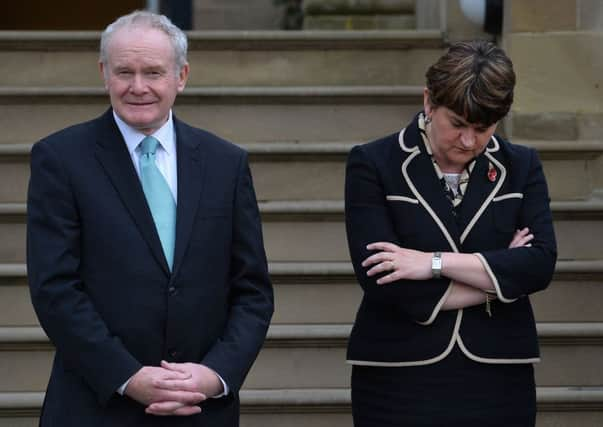Election inevitable '˜without resolution' Brokenshire tells MPs


Northern Ireland Secretary James Brokenshire told the Commons the situation at Stormont following Deputy First Minister Martin McGuinness’s resignation was “grave” and a snap election was now highly likely.
The departure of Sinn Fein veteran Mr McGuinness amid a row over a green energy scandal forced Democratic Unionist First Minister Arlene Foster from office as well.
Advertisement
Hide AdAdvertisement
Hide AdTheoretically the parties have seven days to resolve their differences before Mr Brokenshire has to call a poll.
However, Mr McGuinness has made clear there will be no going back to the status quo and his party is preparing to face the electorate.
Mr Brokenshire expressed concern about the consequences of an election, raising the spectre of a return to direct rule. He urged the leaders to work together to find a resolution and safeguard the progress made under the peace process.
“We must not put all of this at risk without every effort to resolve differences,” he said.
Advertisement
Hide AdAdvertisement
Hide Ad“We must continue to do all we can to continue to build a brighter, more secure Northern Ireland that works for everyone and I therefore urge Northern Ireland’s political leaders to work together to come together to find a way forward from the current position in the best interests of Northern Ireland.”
He said: “We do have to be realistic - the clock is ticking. If there is no resolution an election is inevitable despite the widely held view that this election may deepen divisions and threaten the continuity of the devolved institutions.”